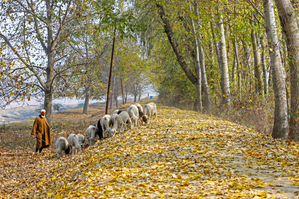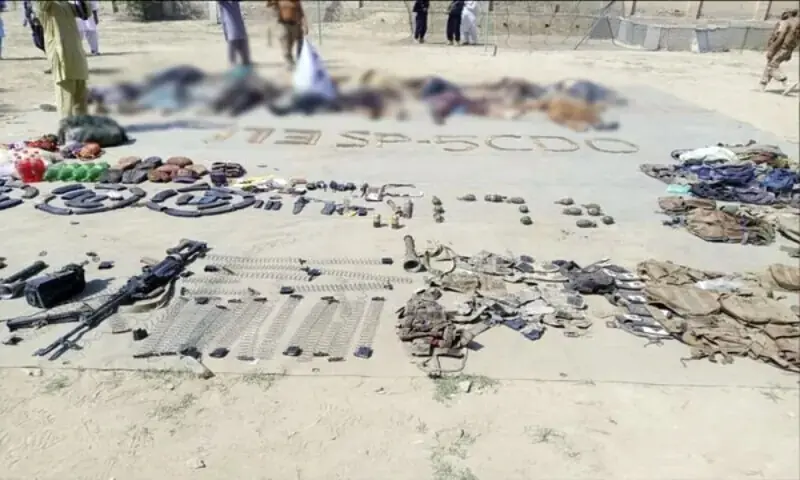By India News Newsdesk
Copyright indianews

Srinagar, Sep 29 (IANS) As autumn advances with changing colours of Kashmir’s landscape, the nomadic goatherds called the ‘Bakarwals’ start their long journey from the highland meadows to the plains of the Jammu region.
With their flocks of sheep, goats, horses and all essential household goods, the migration from Kashmir to their homes in Rajouri, Poonch and Reasi districts of Jammu region is a saga of endurance and the strength of these hardy souls.
The males herd the flock, negotiating the journey through heavily trafficked roads to narrow mountain tracks, while the females carry their younger ones on their backs, wrapped in a safely hanging sheet of cloth.
The horses are loaded with tents, blankets, cooking and serving utensils, clothes, and some essential medicines, especially if the family has an elder to care for.
From late April till the autumn sets in, the Bakarwals live in the open in the highland pastures of the Valley. To protect their flock from predators like bears, leopards and jackals, the Bakarwal family is always accompanied by a special breed of dogs known as the ‘Bakarwali Dogs’, which are the best friends of the nomadic family during day and night in the mountains.
These dogs not only keep the predators away, but also keep an eye on the flock so that none of the sheep or goat stray away from the main flock while grazing.
Maize and wheat ‘Rotis’ with lots of ghee and milk are the staple diet of the Bakarwal families. They use minimal spices and mostly cook their food with a little ghee, salt and spices.
The Bakarwals, unlike the Kashmiris, are not rice eaters. Despite the high content of ghee and high-fat milk, it is very unusual to see an obese person among the Bakarwal families.
They travel at least 300 km from their winter homes in Poonch, Rajouri and other districts of the Jammu region to the Valley in spring and cover the same distance back to their winter homes in autumn, both ways travelling on foot.
High blood pressure, diabetes and other common diseases of modern times are rarely found among the Bakarwals. Even childbirth is attended by the elder women of the family, and admission to maternity hospitals for childbirth is uncommon among the nomadic families.
For the primary education of their children, the government has established mobile schools that accompany the families and impart basic education to children till they get their admissions for middle and secondary school classes.
All the grown-up children of the family are admitted to schools in their original places of residence in Poonch, Rajouri and other districts of the Jammu division.
After they were given the Scheduled Tribe status by the Central government, the Bakarwal youth are now making it to professional colleges for medical, engineering and other professions, while the brighter ones compete for the civil services in the union territory and the All-India Civil Services.
Despite better prospects and opportunities of spending their lives as permanent residents in their places of domicile, the Bakarwals have jealously guarded their nomadic tradition and singular culture by sticking to their migration.
While living simple and healthy lives, these nomadic souls always strike a good bargain when they sell their surplus flock of sheep and goats to the traders.
The funds generated by the annual sales of surplus flock are used to buy fodder and medicines for the flock. The passage of the Bakarwals with their flocks and family out of the Valley is the sure indicator that winter is not far away in Kashmir.



